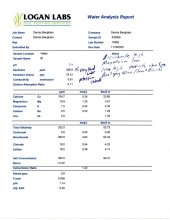
 3
3




"Study books and observe nature; if they do not agree, throw away the books." ~ William A. Albrecht
 4
4




 5
5




Small-holding, coppice and grassland management on a 16-acre site.
 6
6




Visit Redhawk's soil series: https://permies.com/wiki/redhawk-soil
How permies.com works: https://permies.com/wiki/34193/permies-works-links-threads
 6
6




Invasive plants are Earth's way of insisting we notice her medicines. Stephen Herrod Buhner
Everyone learns what works by learning what doesn't work. Stephen Herrod Buhner
 1
1




John Daley Bendigo, Australia The Enemy of progress is the hope of a perfect plan
Benefits of rainfall collection https://permies.com/t/88043/benefits-rainfall-collection
GOOD DEBT/ BAD DEBT https://permies.com/t/179218/mortgages-good-debt-bad-debt
 3
3




Living a life that requires no vacation.
 2
2




James Freyr wrote: I told my brother about this, and his retort was a statement that I interpreted as an absolute, and he said "yeah... hard water kills appliances" said in such a way as to imply it was fact. It's a belief he holds, but one that I question. Perhaps, maybe hard water can contribute to accelerated wear on household appliances, maybe in something like mineral scale buildup, but in my particular case, I am more inclined to believe that there was likely a defect in a component.
Trees are our friends
 5
5




John C Daley wrote:Can you live without a dishwasher if they get so damaged with use?
"Study books and observe nature; if they do not agree, throw away the books." ~ William A. Albrecht
 4
4




 4
4




PURPLE CARDS! GET YOUR GARDENING CARDS HERE!! https://www.kickstarter.com/projects/paulwheaton/garden-cards?ref=4qylf3. "The only thing...more expensive than education is ignorance."~Ben Franklin. "We can easily forgive a child who is afraid of the dark; the real tragedy of life is when men are afraid of the light." ~ Plato





|
You guys haven't done this much, have ya? I suggest you study this tiny ad:
The new permaculture playing cards kickstarter is now live!
https://www.kickstarter.com/projects/paulwheaton/garden-cards
|




